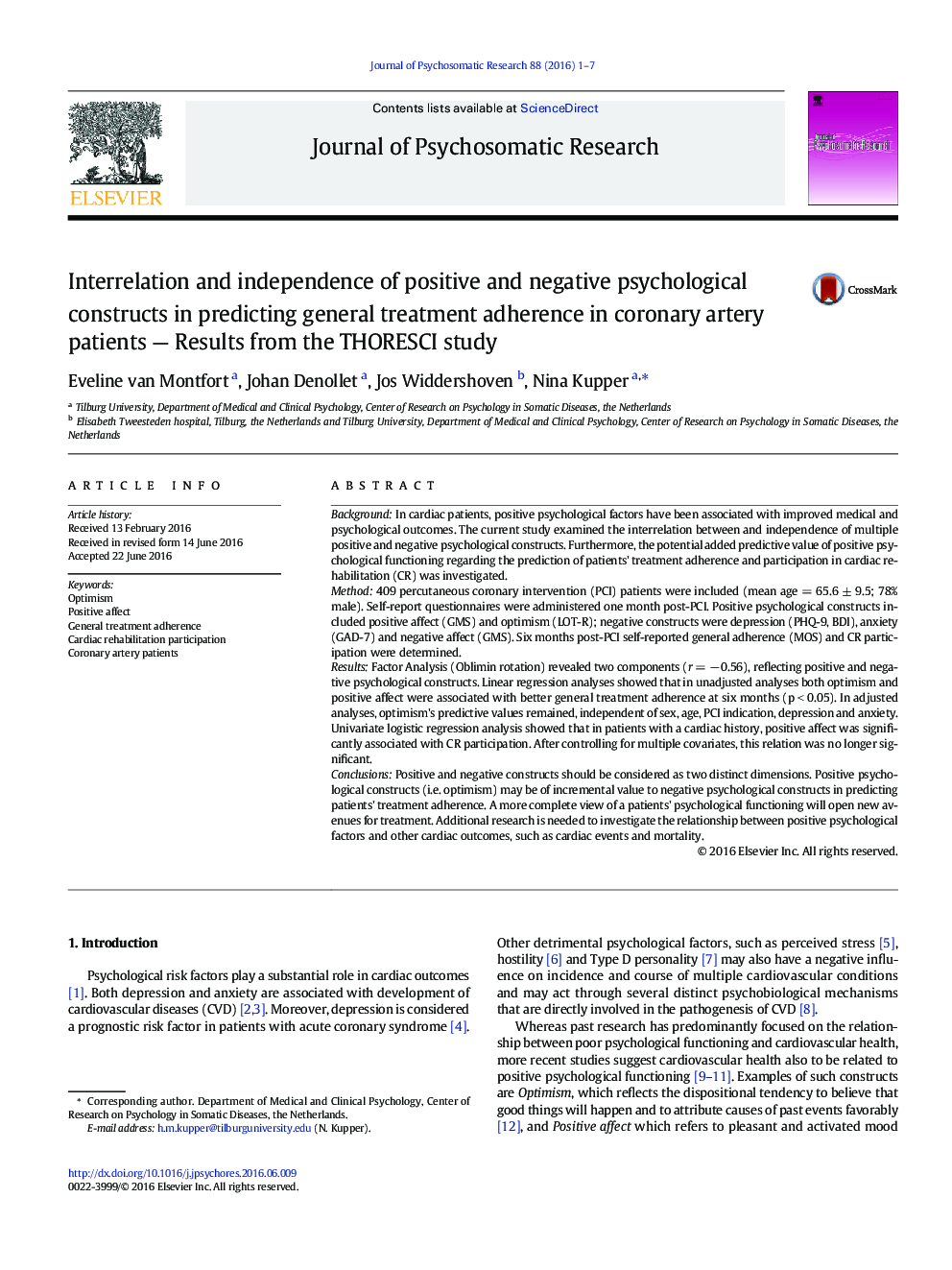| کد مقاله | کد نشریه | سال انتشار | مقاله انگلیسی | نسخه تمام متن |
|---|---|---|---|---|
| 949104 | 1475907 | 2016 | 7 صفحه PDF | دانلود رایگان |
• Factor Analysis (Oblimin rotation) revealed two components.
• The two components were (1) positive and (2) negative psychological constructs.
• Unadjusted: positive constructs were associated with better self-report adherence.
• After controlling for multiple covariates, optimisms predictive value remained.
• Unadjusted: positive affect was associated with lower CR participation.
BackgroundIn cardiac patients, positive psychological factors have been associated with improved medical and psychological outcomes. The current study examined the interrelation between and independence of multiple positive and negative psychological constructs. Furthermore, the potential added predictive value of positive psychological functioning regarding the prediction of patients' treatment adherence and participation in cardiac rehabilitation (CR) was investigated.Method409 percutaneous coronary intervention (PCI) patients were included (mean age = 65.6 ± 9.5; 78% male). Self-report questionnaires were administered one month post-PCI. Positive psychological constructs included positive affect (GMS) and optimism (LOT-R); negative constructs were depression (PHQ-9, BDI), anxiety (GAD-7) and negative affect (GMS). Six months post-PCI self-reported general adherence (MOS) and CR participation were determined.ResultsFactor Analysis (Oblimin rotation) revealed two components (r = − 0.56), reflecting positive and negative psychological constructs. Linear regression analyses showed that in unadjusted analyses both optimism and positive affect were associated with better general treatment adherence at six months (p < 0.05). In adjusted analyses, optimism's predictive values remained, independent of sex, age, PCI indication, depression and anxiety. Univariate logistic regression analysis showed that in patients with a cardiac history, positive affect was significantly associated with CR participation. After controlling for multiple covariates, this relation was no longer significant.ConclusionsPositive and negative constructs should be considered as two distinct dimensions. Positive psychological constructs (i.e. optimism) may be of incremental value to negative psychological constructs in predicting patients' treatment adherence. A more complete view of a patients' psychological functioning will open new avenues for treatment. Additional research is needed to investigate the relationship between positive psychological factors and other cardiac outcomes, such as cardiac events and mortality.
Journal: Journal of Psychosomatic Research - Volume 88, September 2016, Pages 1–7
